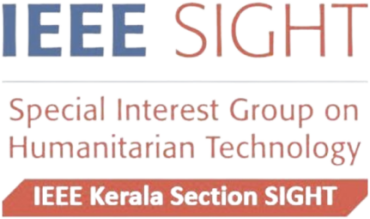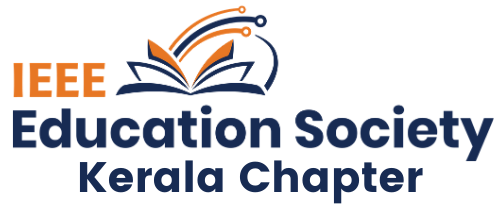STEAM FOR SOCIAL GOOD
10-Day Training on IoT and App Development & 2 Day Action Filled Makethon for SCGs
Funded by

supported by

About the event
‘STEAM for Social Good’ was a 10-Day IoT and App development training program + 2 day Makethon to inspire students to create apps and IoT prototypes for solving societal challenges. It took place in Amrita Vidyalayam, Edappally between Sept 3-18 for students studying in grades 6-9. It was funded by IEEE TryEngineering and conducted by IEEE Education Society Kerala Section, in collaboration with IEEE SIGHT Kerala Section and AMMACHI Labs, Amrita Vishwa Vidyapeetham.
In the ten-day STEAM coding camp children learnt to apply a design thinking approach towards UN Sustainable Development Goals. The coding camp happened in hybrid mode in Kochi, Kerala India with 5 days of online training and 5 days of offline training during Onam holidays. Three researchers of AMMACHI Labs, Amrita Vishwa Vidyapeetham, Gayathri Manikutty, Sreejith Sasidharan and Pranav Prabha who have been recognized by IEEE pre-university team as IEEE STEM Champions, envisaged and conducted the program with the help of a IEEE core volunteer group comprising of Sarath, Ayisha, Akash, Aleena, Electta, Salih, Thomaskutty, Akarsh, Aromal, Mahesh, and Archana. Nearly 20 IEEE student volunteers and young professionals participated in the program, taking up the responsibility of mentors and role models for the children. Through this outreach program, IEEE volunteers are empowering the next generation of technology innovators.
On September 17 and 18, 2022, a two-day day STEAM For Social Good Makethon was concluded with grandeur and enthusiasm. The Makeathon was inaugurated by Dr. Mini Ulanat, Chairperson IEEE Kerala Section, Dr. Suresh Nair, Chairperson IEEE India Council, and Prof. Muhammed Kasim, Vice Chair, IEEE Kerala Section. A total of 50 students in 10 student teams participated in the two-day Makeathon. Four teams were declared as winners. The winning teams received a cash award of Rs 5000 each. Swami Purnamritananda Puri and Dr Vishal Marwah, Principal, Amrita Hospitals were present at the closing ceremony along with IEEE Education Society Kerala Section Chairperson Er C.M. Varughese, IEEE Kochi Sub-Section Chairperson Dr M.V. Rajesh and IEEE Education Society Kerala Section Design and Publicity lead Prof Maya Menon. The program was a huge success and has inspired many students to continue learning 21st century skills and creating technology artifacts for UN SDGs through experiential learning.
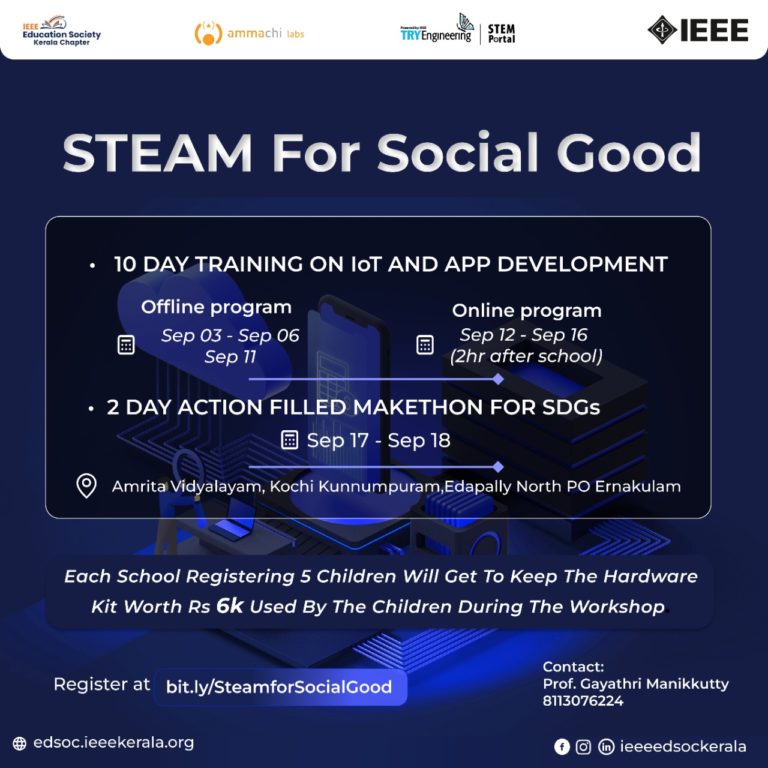
Day 1 - Forenoon session
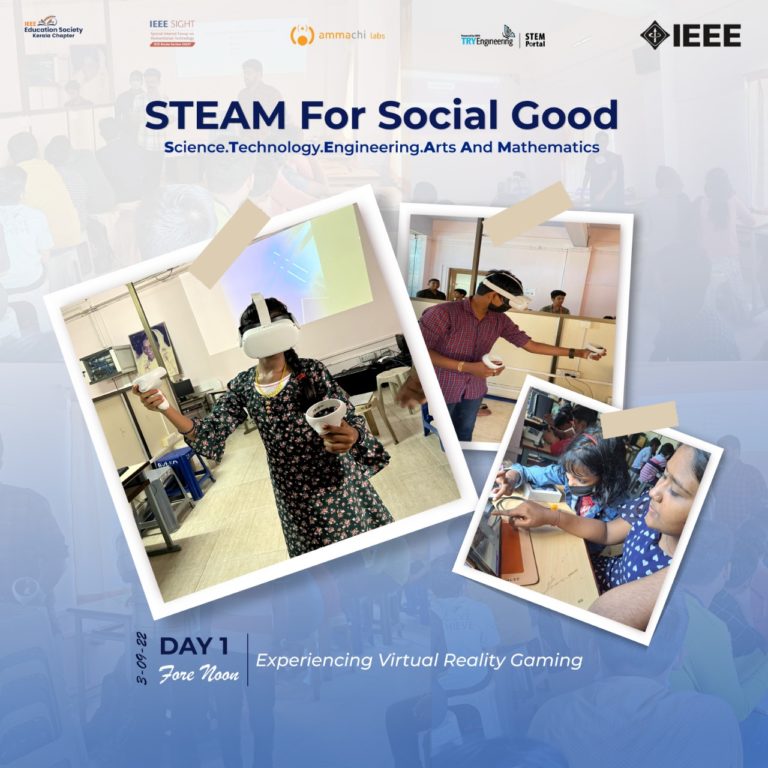
The forenoon of the training program started with the children playing a VR game where they interacted with a robot to build a 3 dimensional toy. Then they moved on to learn about sustainability and UN Sustainable Development Goals (SDGs). The morning session finished with a thrilling and engaging quiz game on UN SDGs.
Day 1 - Afternoon session
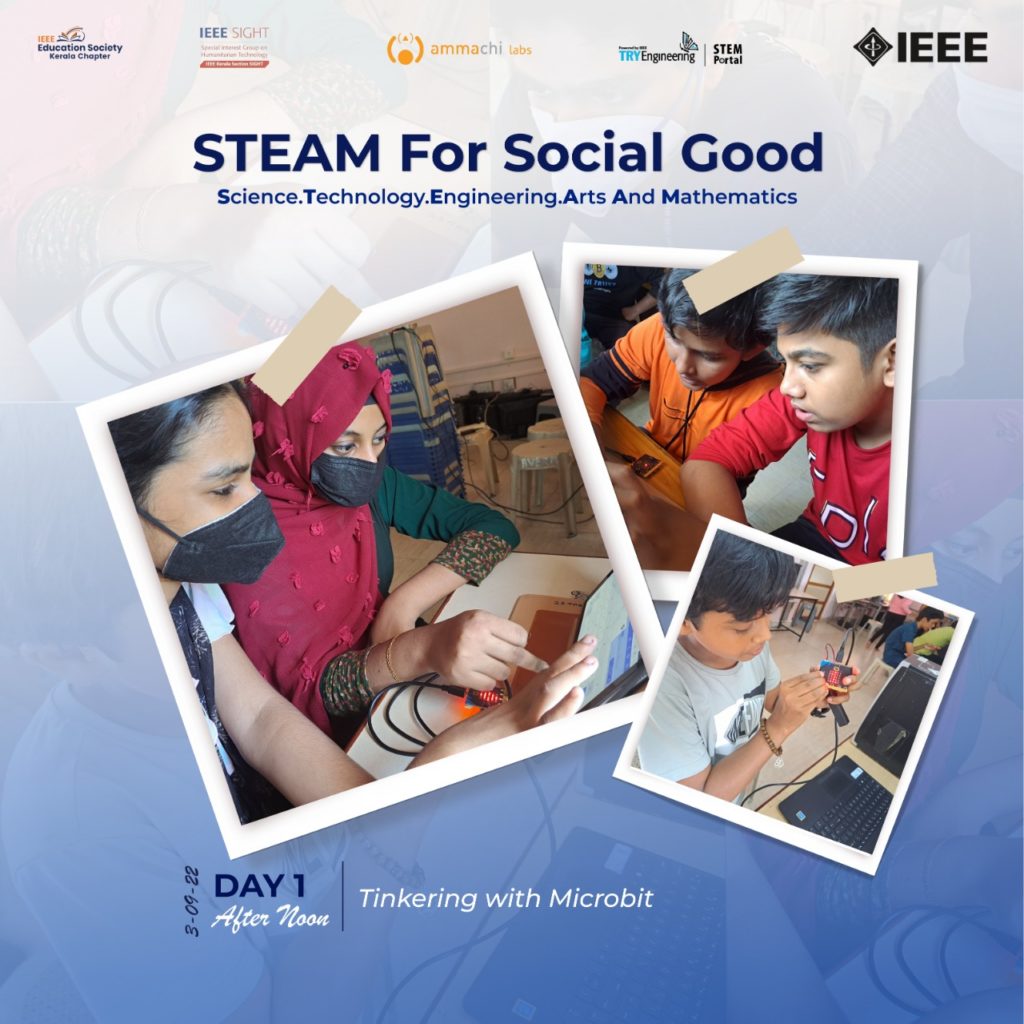
Children were introduced to BBC Micro:Bit and Microsoft Makecode. They programmed the Microbit to display their name as a name badge and program it as a dimmerstat. At the end of the day children had fun playing once again with the VR Headset.
Day 2 - Morning session
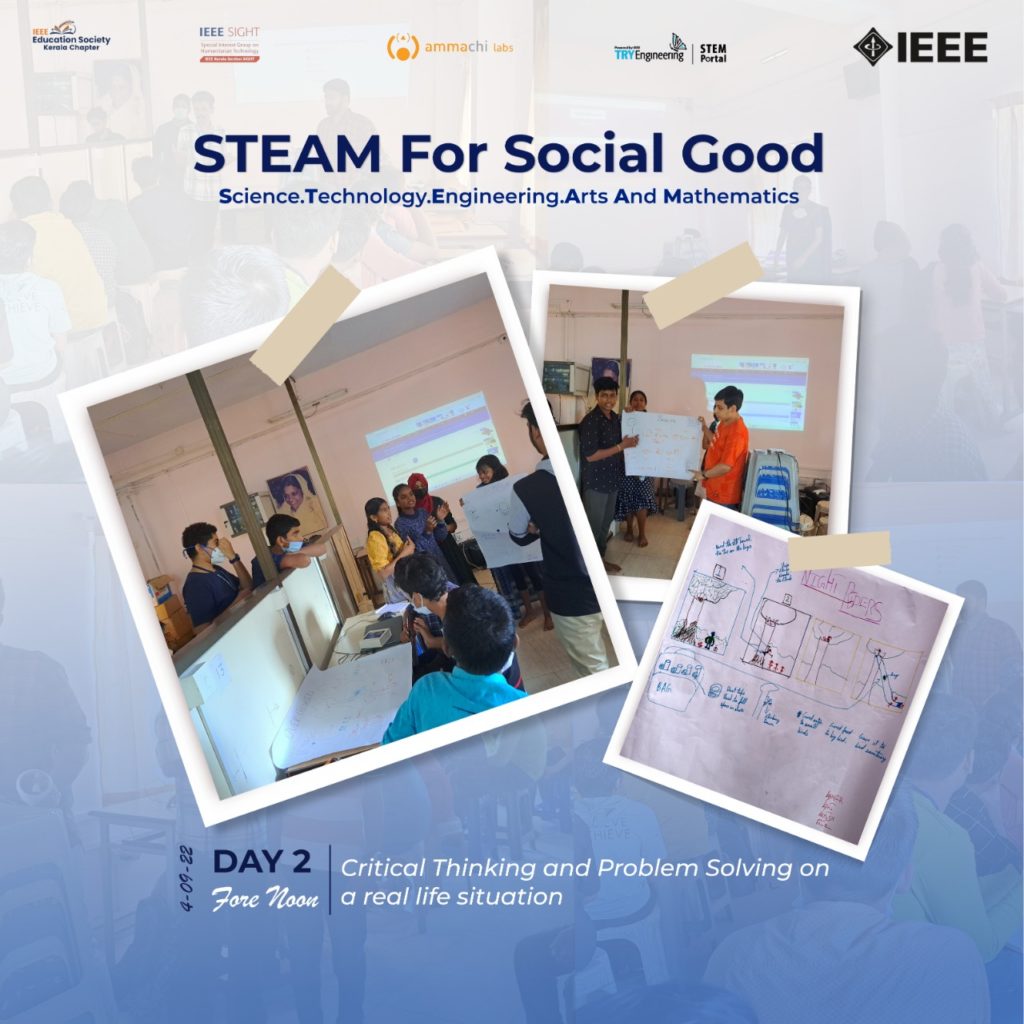
Day 2 started with children working on creative problem solving. They had to propose a solution to save a mother eagle struggling with a broken wing, helpless to feed or defend her brood in the nest perched high above in a tree which they found when they went on a hiking camp in the forest. In their backpack, they only had hiking boots, a water bottle, a 3-foot-square towel, a Leatherman tool, a Swiss Army knife, a basic first-aid kit, a roll of duct tape, and two four-person tents of ripstop nylon with the bungee cords and metal tent pegs that go with them. Children drew their solutions to this problem statement on a chart paper and presented their creative rescue solution to the class.
Day 2 - Afternoon session
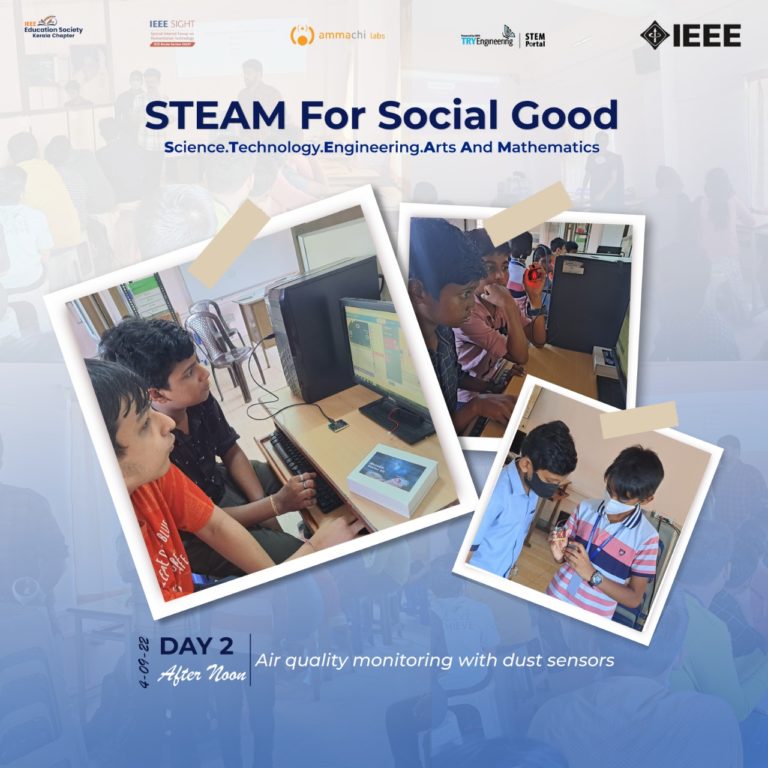
Children continued tinkering with BBC Micro:bit. They learnt about event handling with buttons and how accelerometers work. They made a virtual dice and a digital handheld counter to practice by doing. They wrapped up the day by creating an air quality monitoring station using a dust sensor.
Day 3 - Morning session
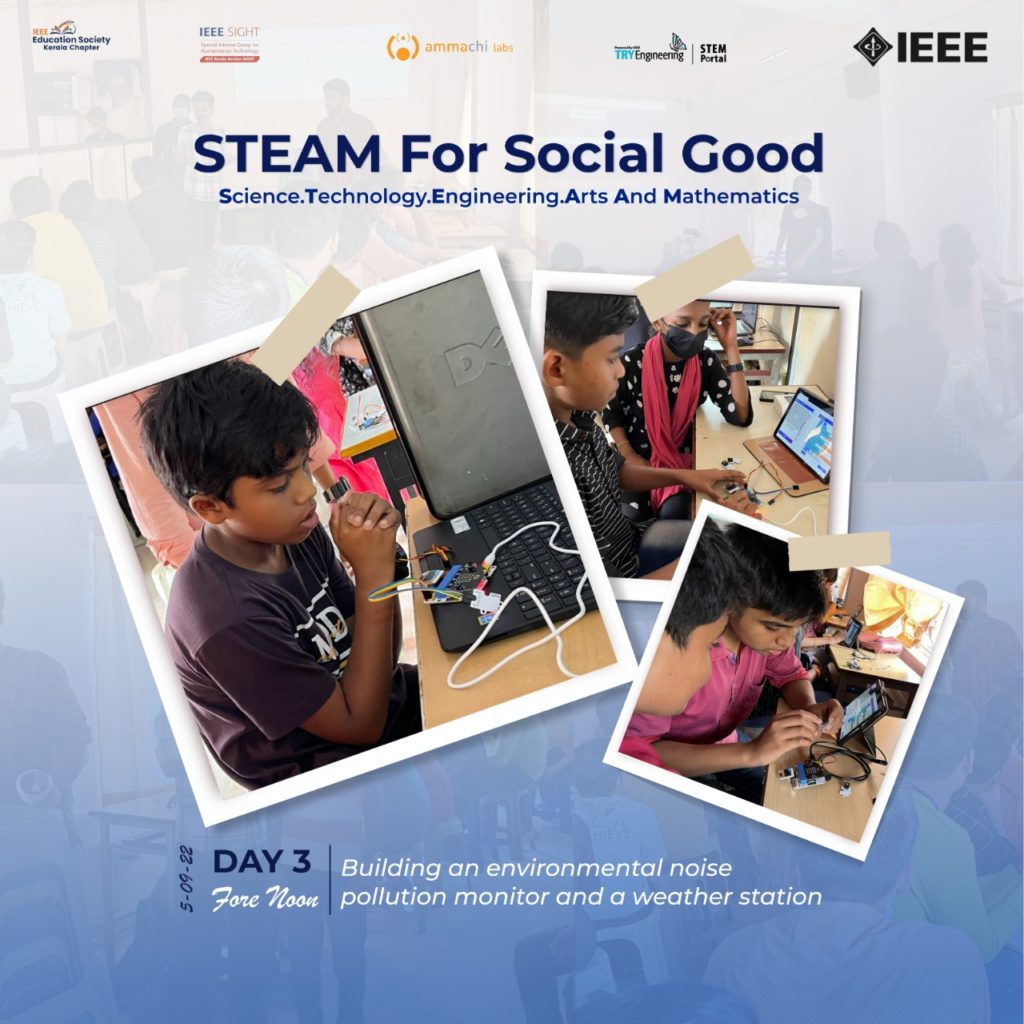
Children learnt more about sensors and built applications using them. They built an environmental noise pollution monitor so as to reduce physiological and psychological ill-effects of environmental noise pollution. They built a weather station to monitor the ambient temperature and humidity in real time.
Day 3 - Afternoon session
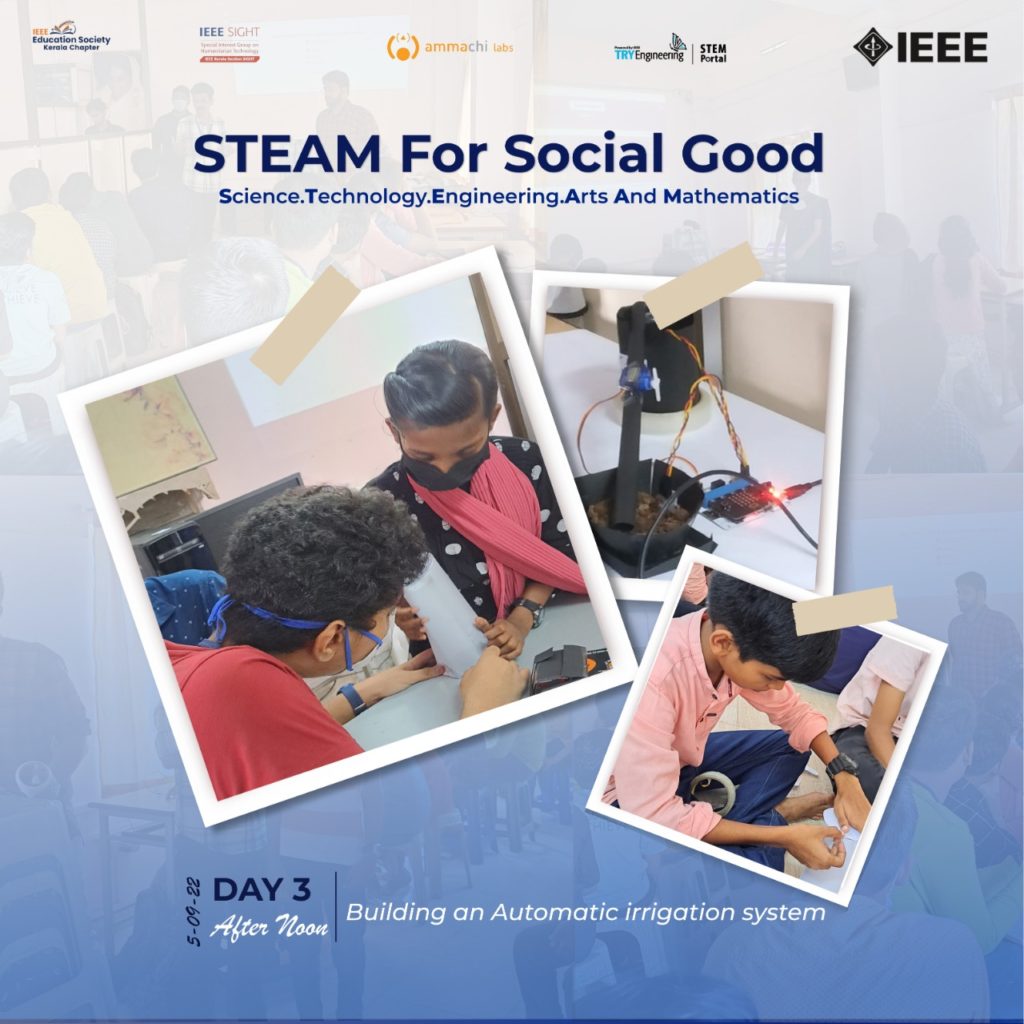
Participants experimented with the STEAM kit and developed an automatic irrigation system. The system could analyze the soil’s moisture quantity and develop a capable system for irrigating the land.
Day 4 - Morning session
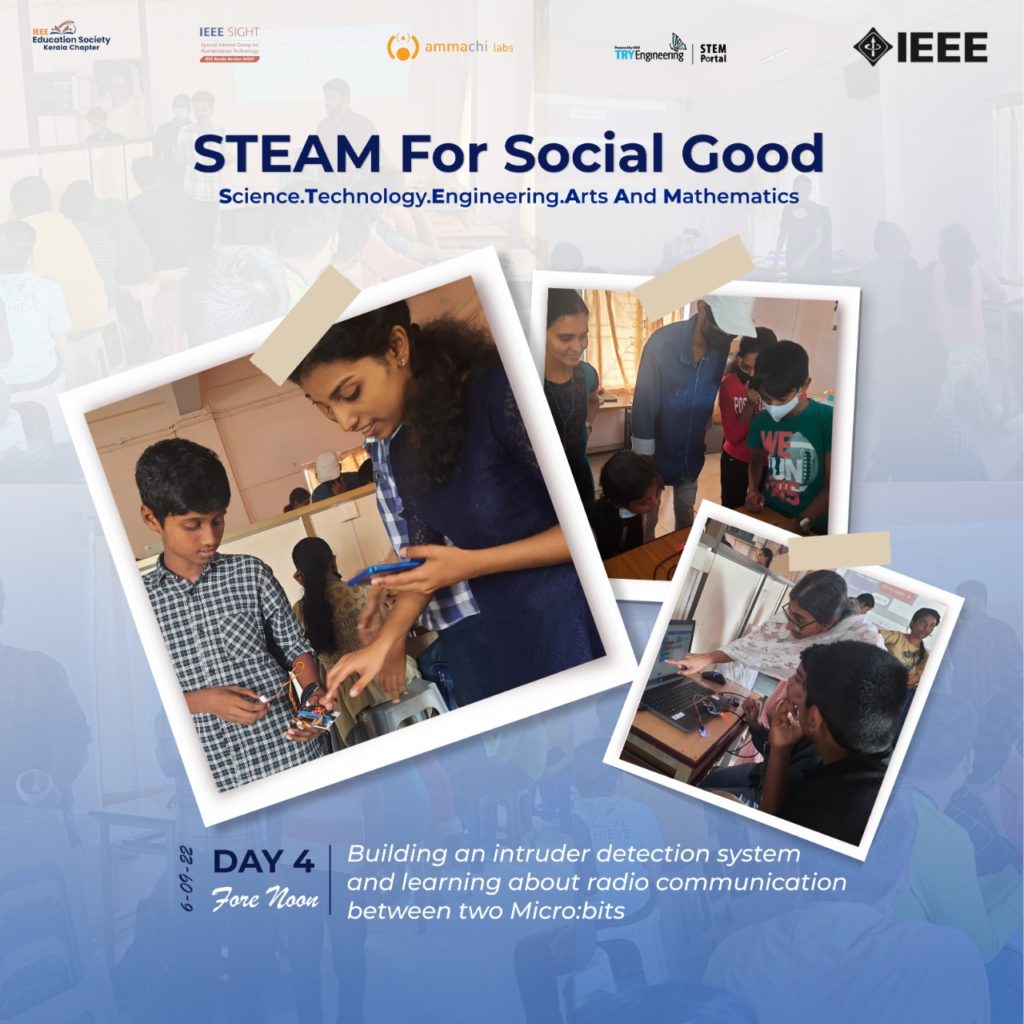
Day 4 was particularly filled with lessons on radio communication between two Micro bits. Also, as a side quest, the children developed an intruder detection system that could identify intrusion attempts of any type.
Day 4 - Afternoon session
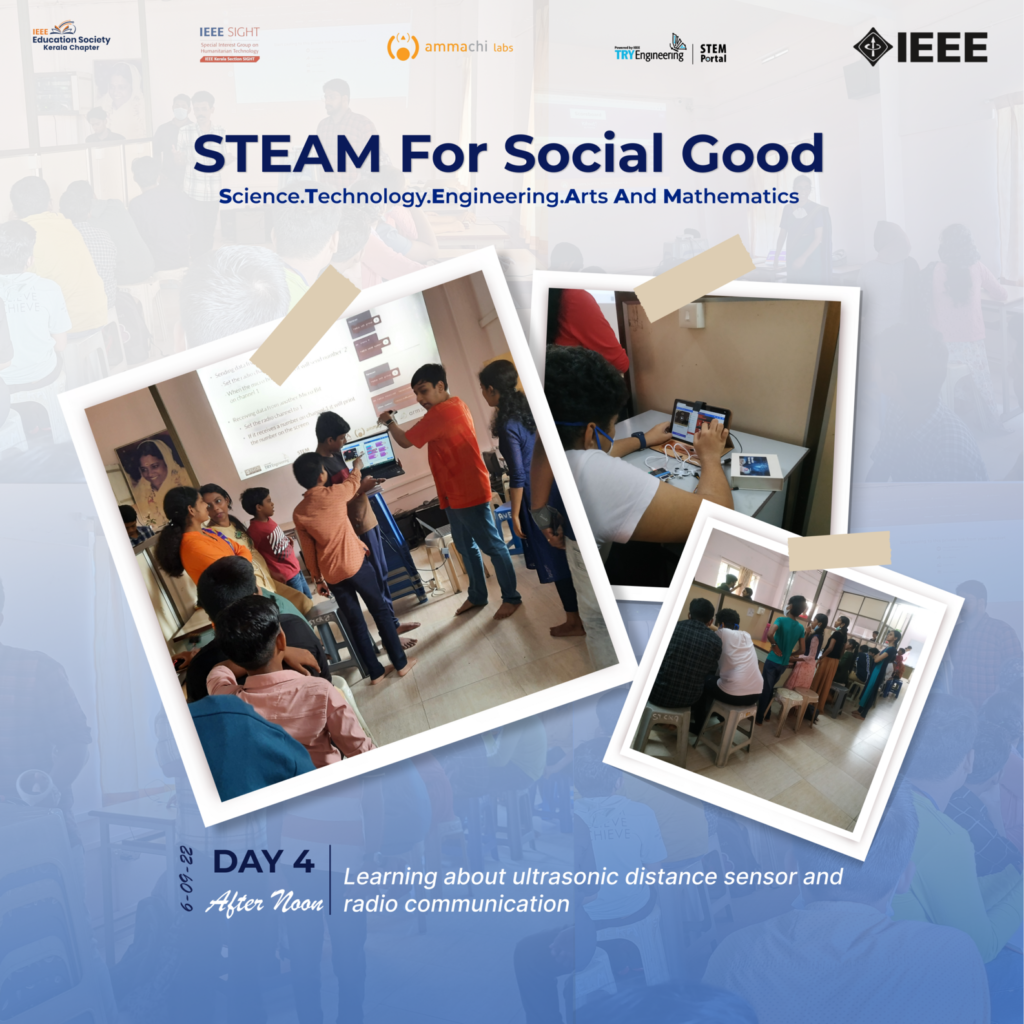
Children learned more about distance sensing using ultrasonic sensors and gained insight into its application. Further, a detailed overview of radio communication was also part of the session that followed.
Day 5 - Session
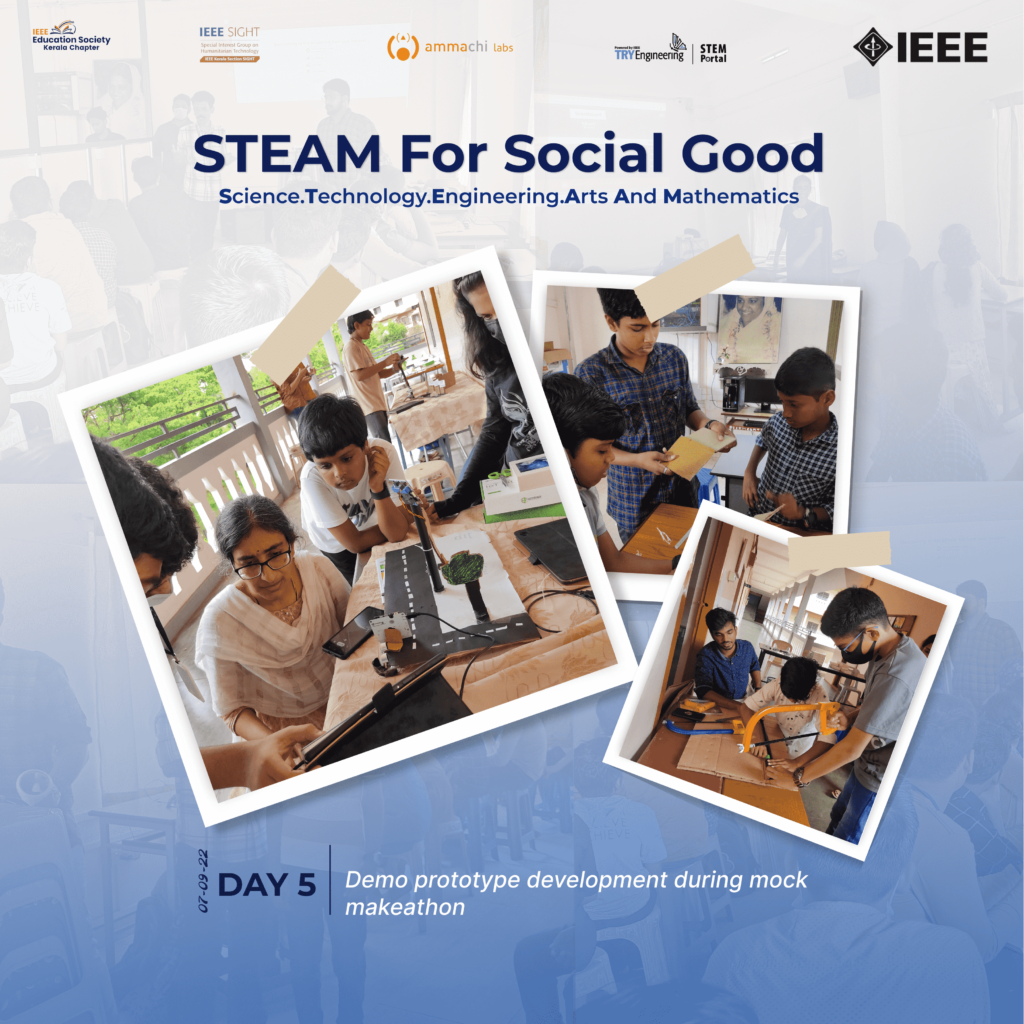
Online session Sep 13 - Sep 16
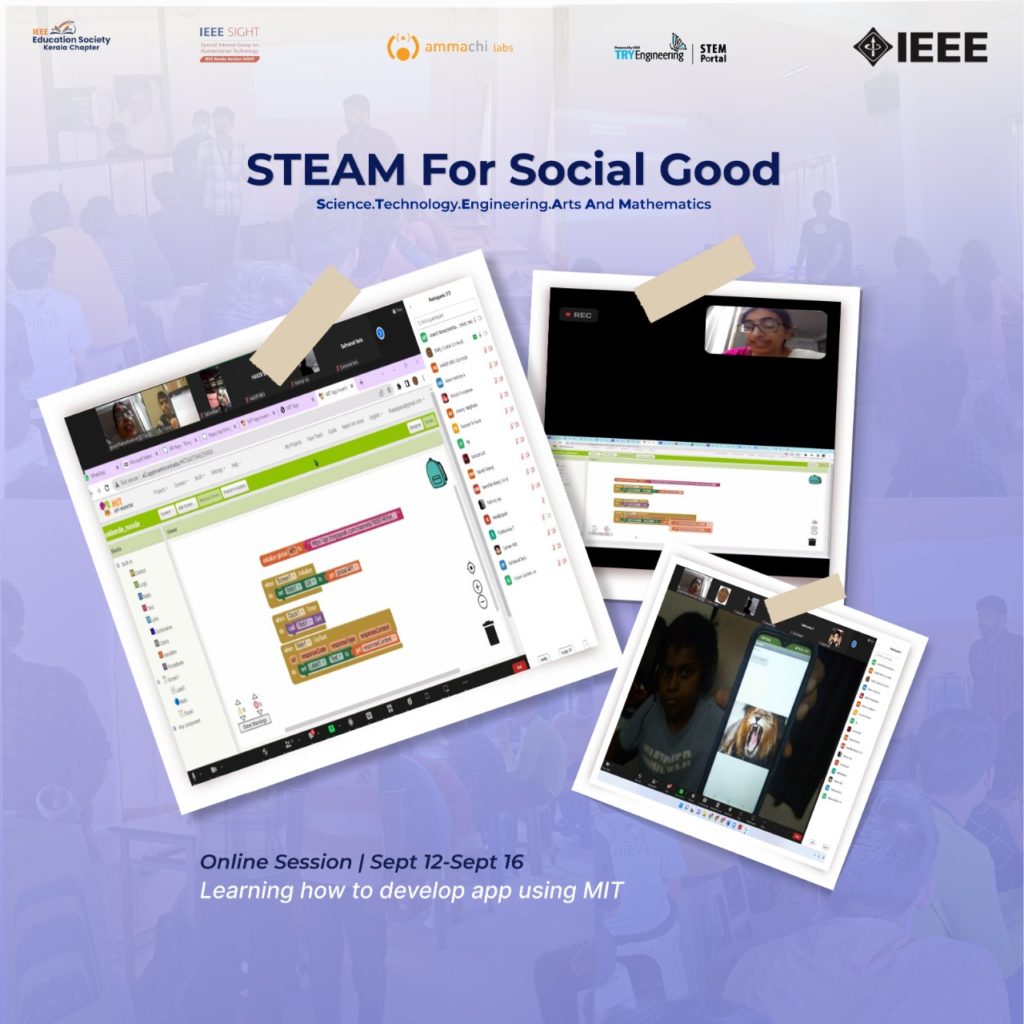
Through a series of online sessions, children were given training on IoT Development and App Development. These sessions were curated specifically to ensure maximum output from the students.
Makeathon Inaugural Session
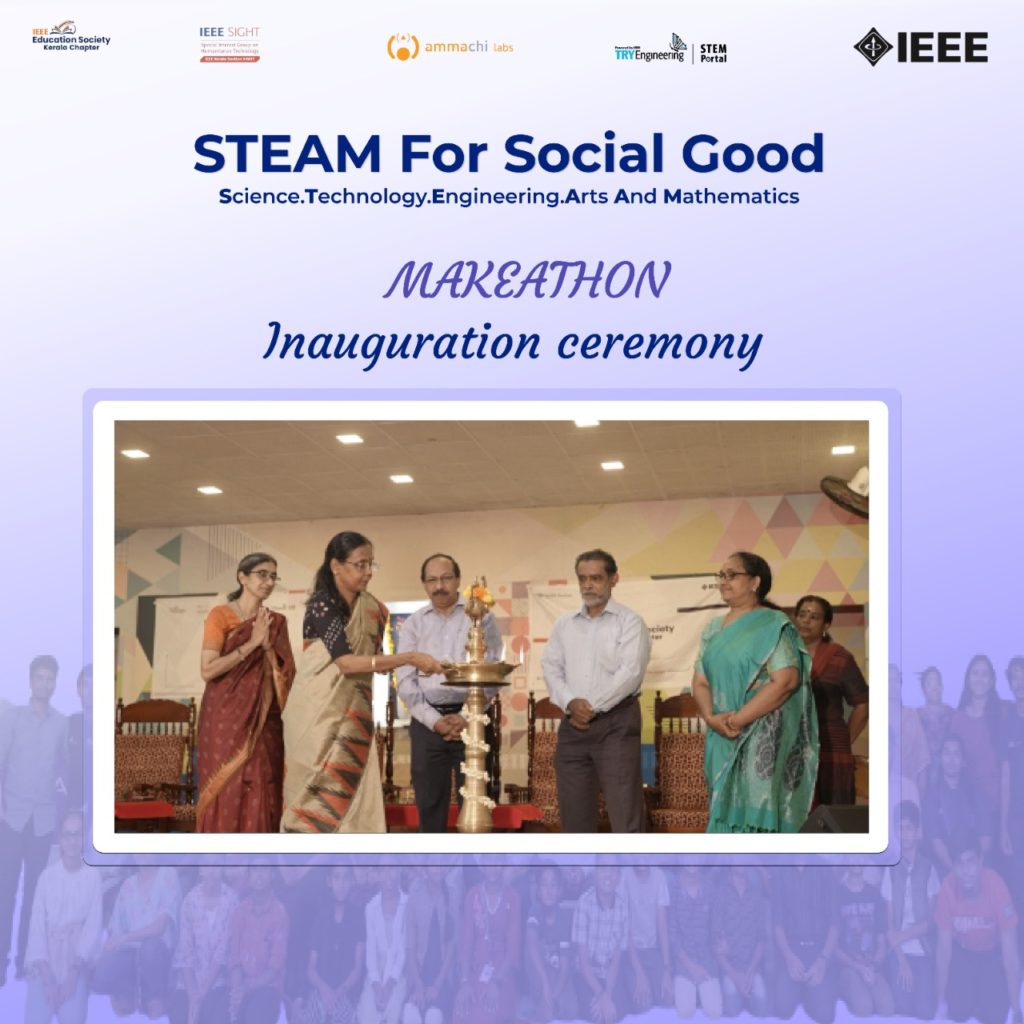
IEEE EdSoc Kerala Chapter and Ammachi Lab, in collaboration with Amrita Vidyalayam, Kochi conducted the inaugural ceremony of the STEAM for Social Good Makeathon on 17th September 2022. The event was presided over by Dr. Suresh Nair, Chairperson of IEEE India Council, Dr. Mini Ulanat, Chairperson of IEEE Kerala Section, Prof. Muhammed Kasim S, Vice Chair of IEEE Kerala Section, and Smt. Geetha K P, Vice Principal of Amrita Vidyalayam, Kochi.
Makeathon
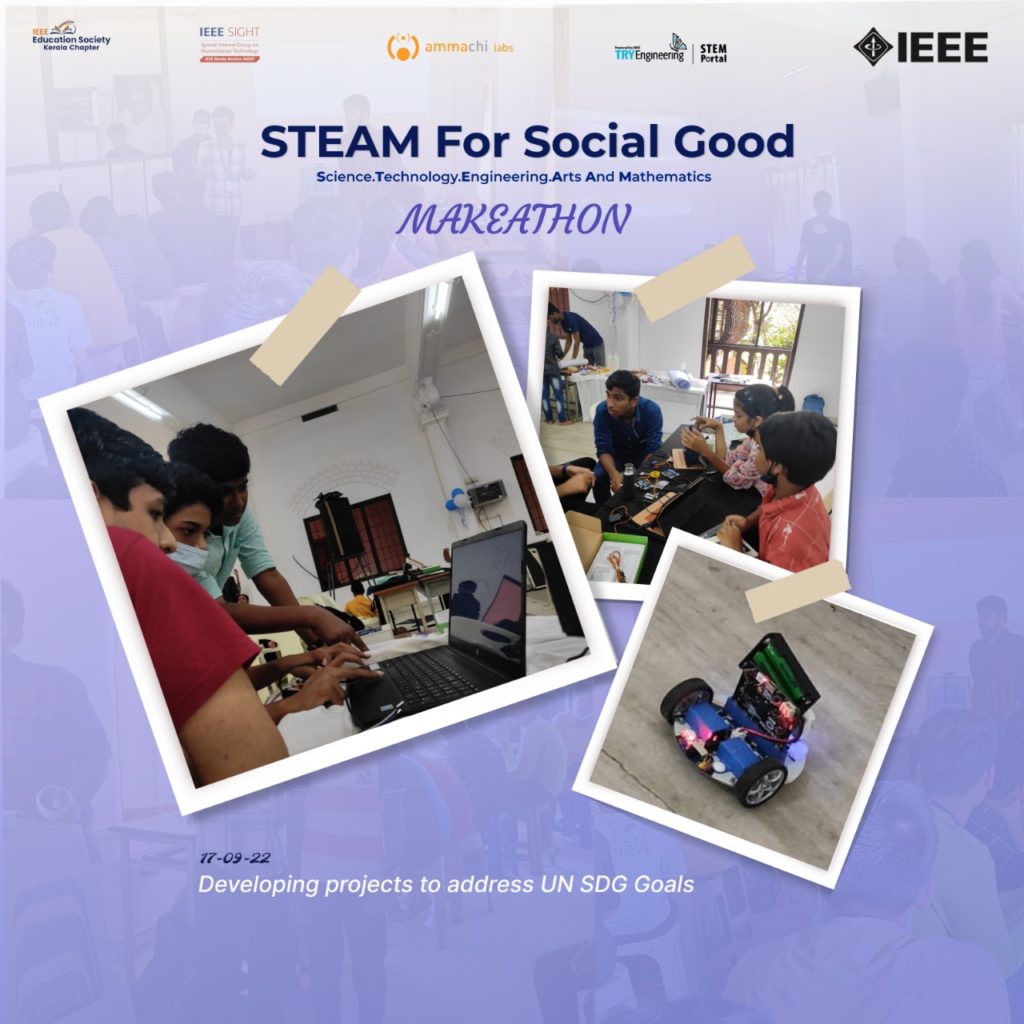
Children were given an opportunity to develop projects to address the UN Sustainable Development Goals. For this, a makeathon was arranged with mentors to support the students. A total of 10 teams participated in the makeathon developing innovative products.
Program Highlights
43 students (10 girls and 33 boys) participated in the two-day Makeathon in 10 teams.
10 physical prototypes were made by student teams in the 2 day Makeathon on 4 design challenges. 5 of the physical prototypes were working prototypes
For the 10 day training program on (Internet of Things) IoT and App Development
- 34 Students from 15 semi-urban and peri-urban schools were trained on IoT and App Development
- Students learned about 17 Sustainable Development Goals and mapped the social problems they saw around them to the SDGs
- Students increased their understanding of sensors, motors, and embedded hardware
- Students increased their appreciation for IoT technology and physical computing to problem-solving
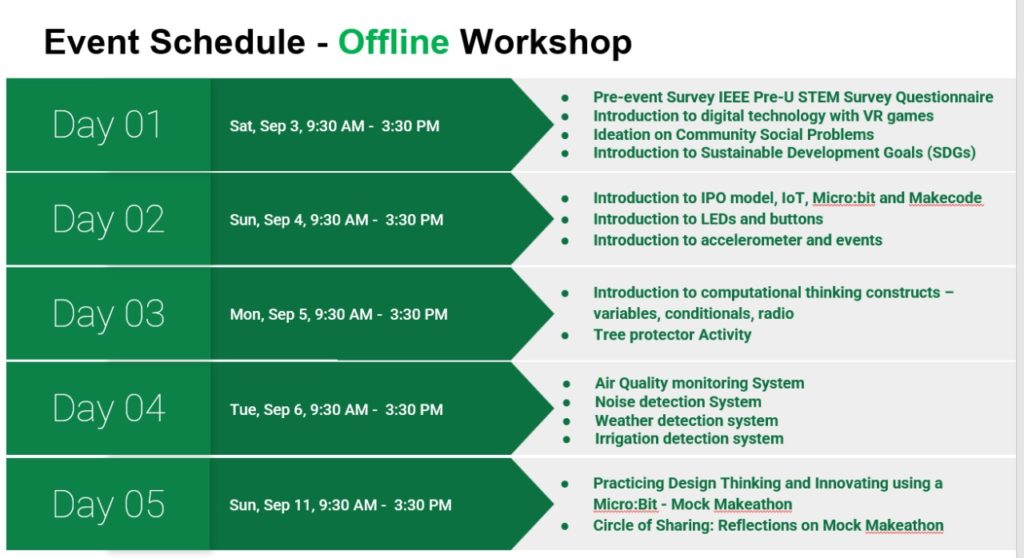
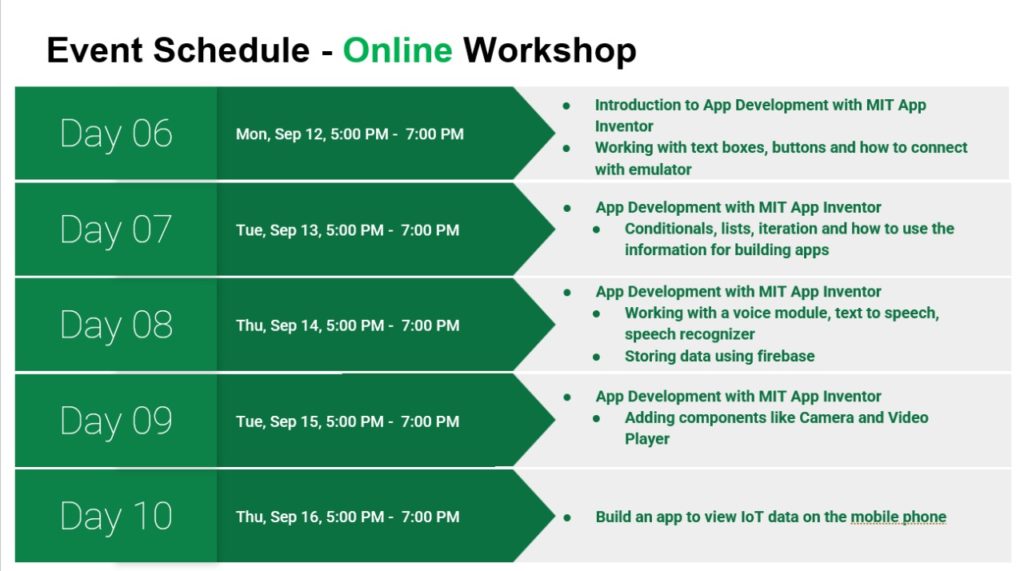
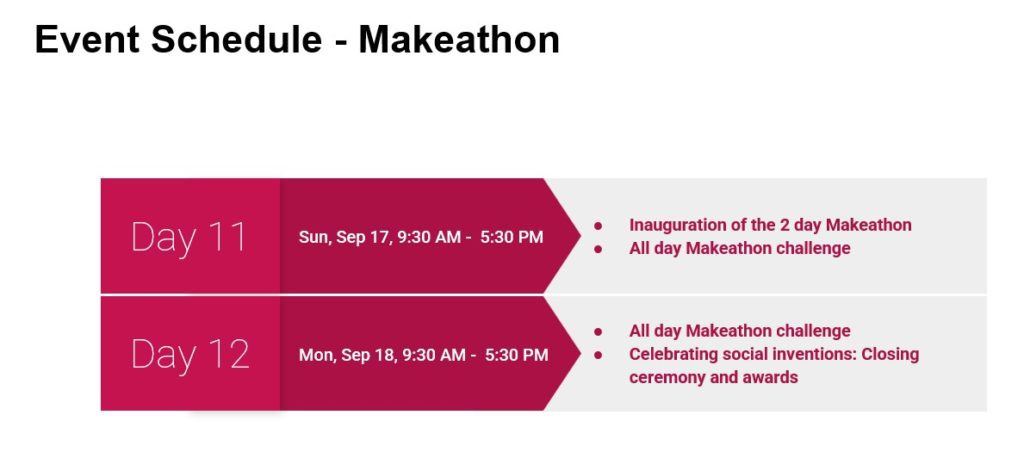
Makeathon challenge statements
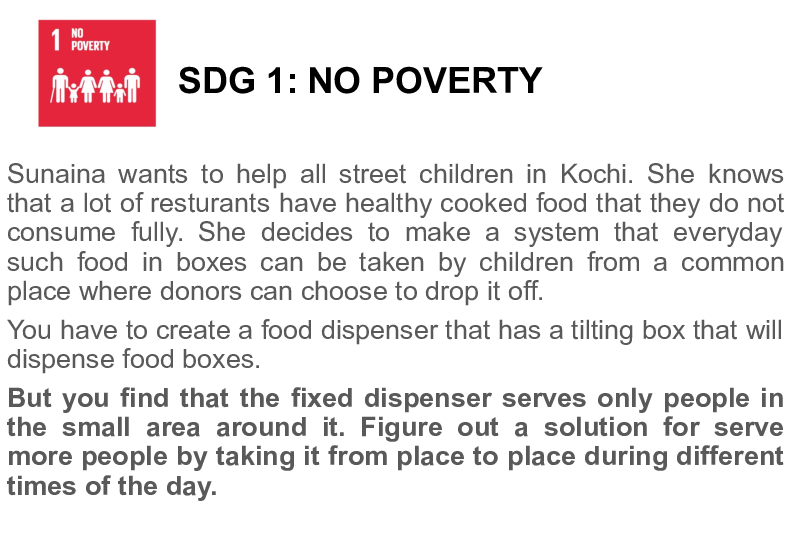



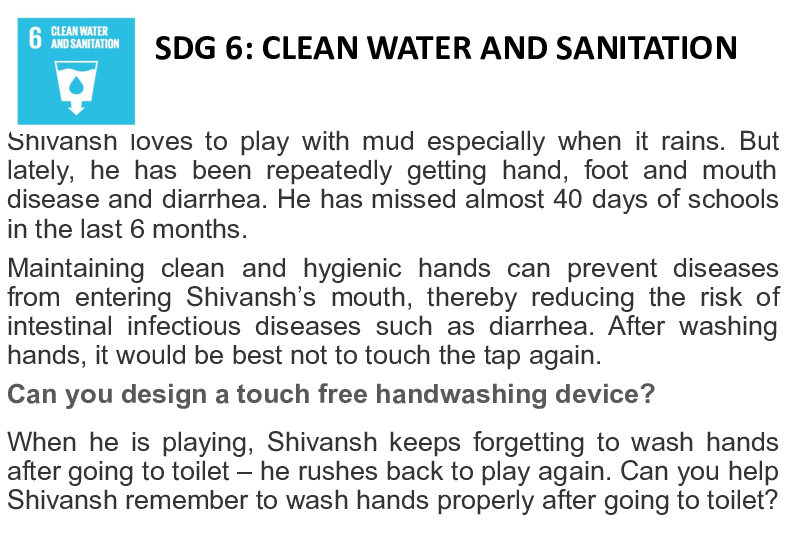
Program Impact survey Results
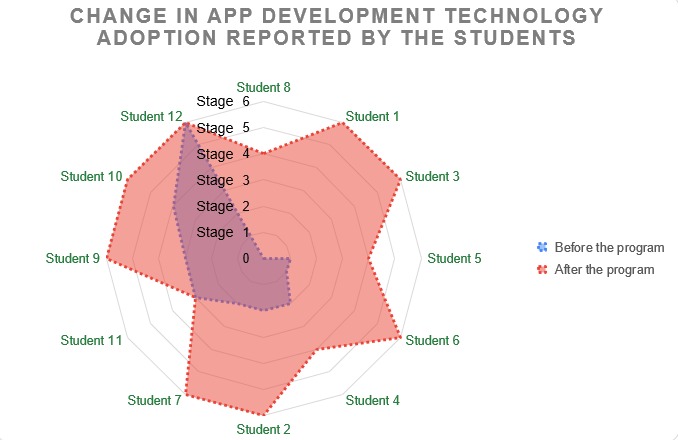

Short descriptions of each of stages of technology adoption that the students selected:
Stage 0: I don’t know what is IoT (Internet of Things)/App Development
Stage 1: Awareness – I am aware that technology exists but have not used it – perhaps I’m even avoiding it. I am anxious about the prospect of using technology
Stage 2: Learning the process – I am currently trying to learn the basics. I am sometimes frustrated using technology. I lack confidence when using technology.
Stage 3: Understanding and application of the process – I am beginning to understand the process of using technology and can think of specific projects in which it might be useful.
Stage 4: Familiarity and confidence – I am gaining a sense of confidence in using the technology for specific projects. I am starting to feel comfortable using technology to do my projects.
Stage 5: Adaptation to other contexts – I think about the technology as a tool to help me and am no longer concerned about it as something unfamiliar. I can use it in many of my projects.
Stage 6: Creative application to new contexts – I can apply what I know about technology in all my projects. I am able to use it as a useful tool and can use it to create new project ideas.
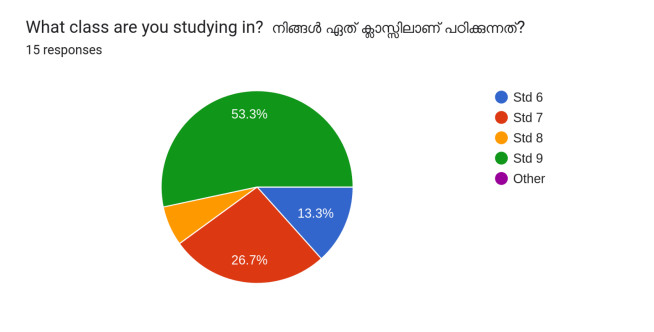
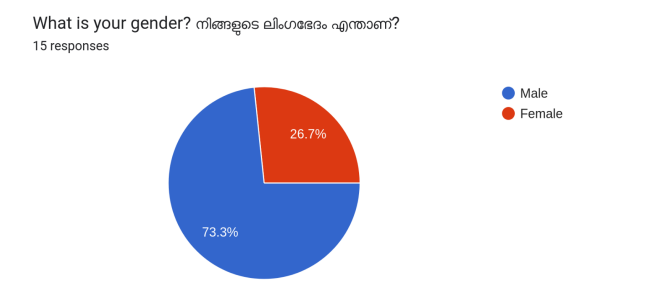
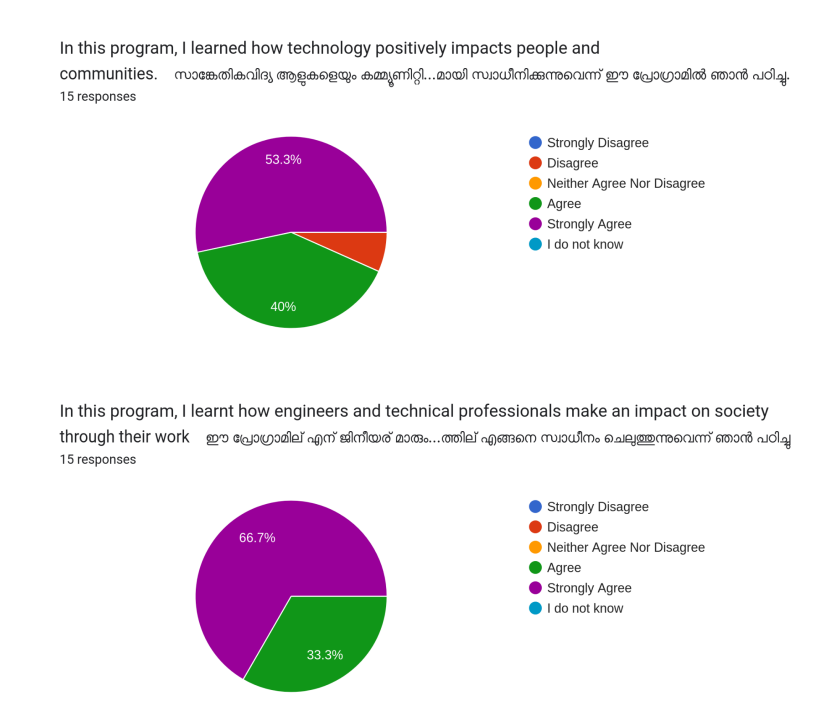
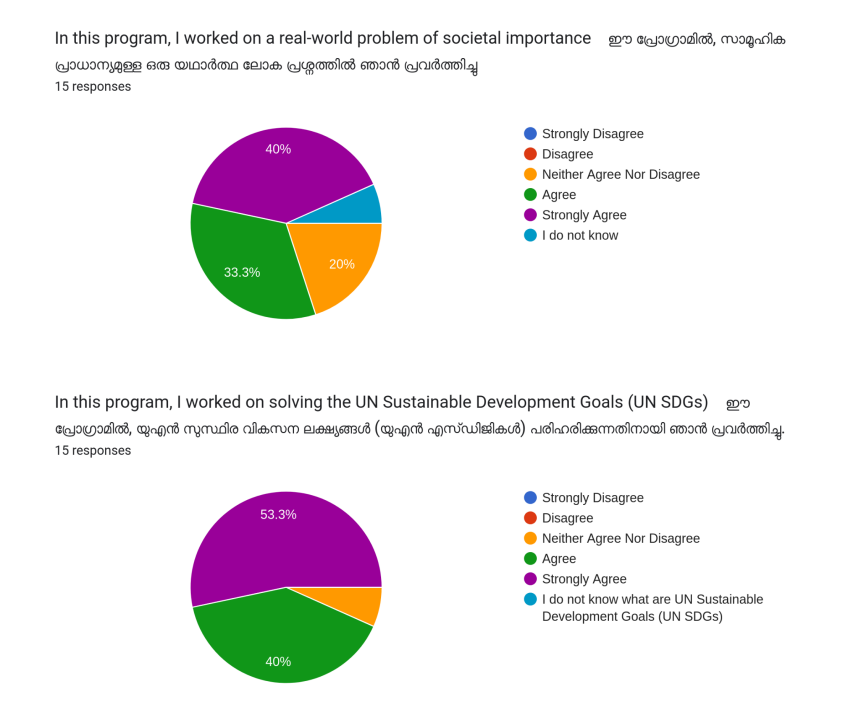
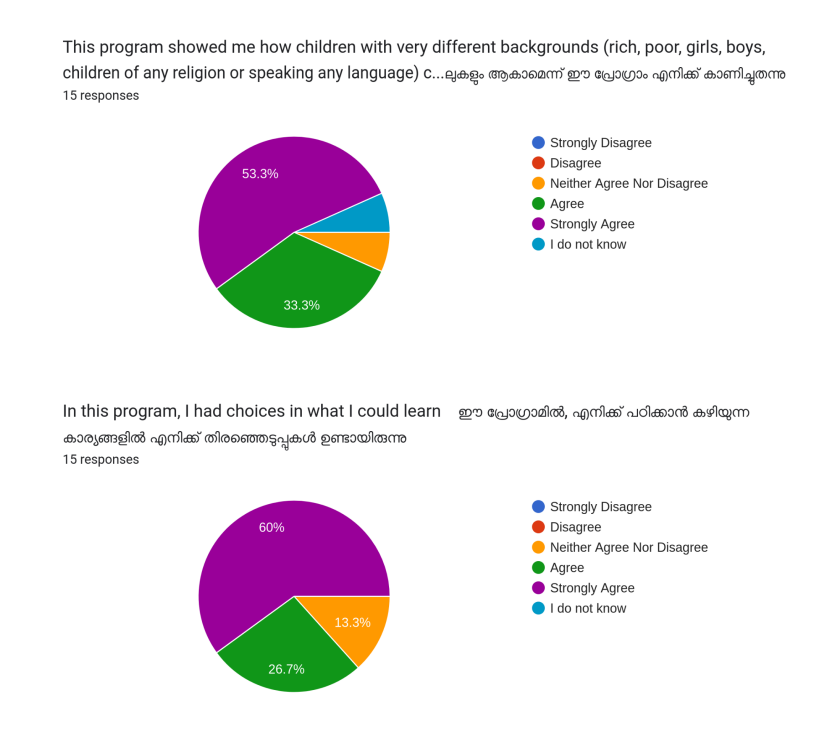
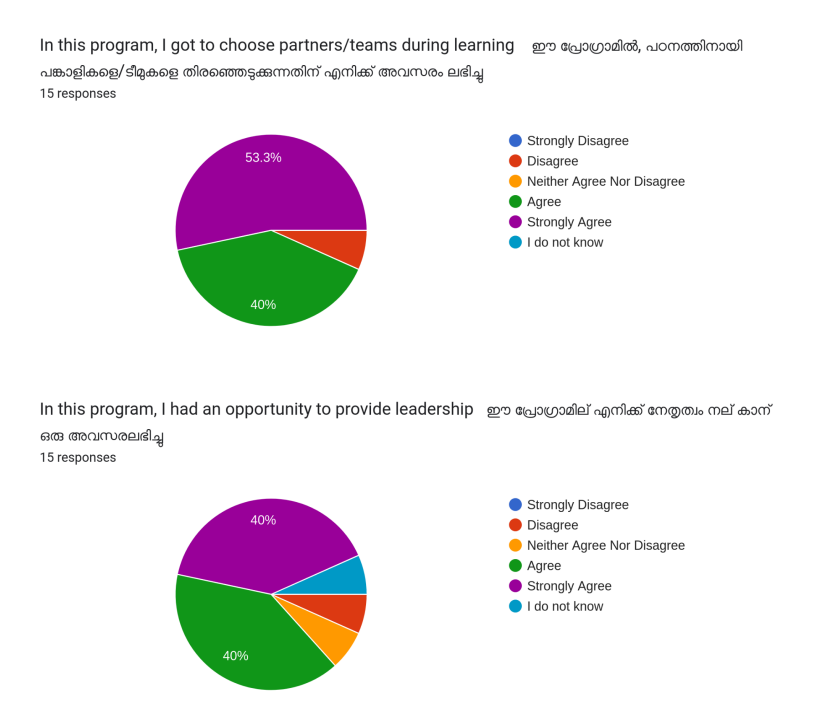
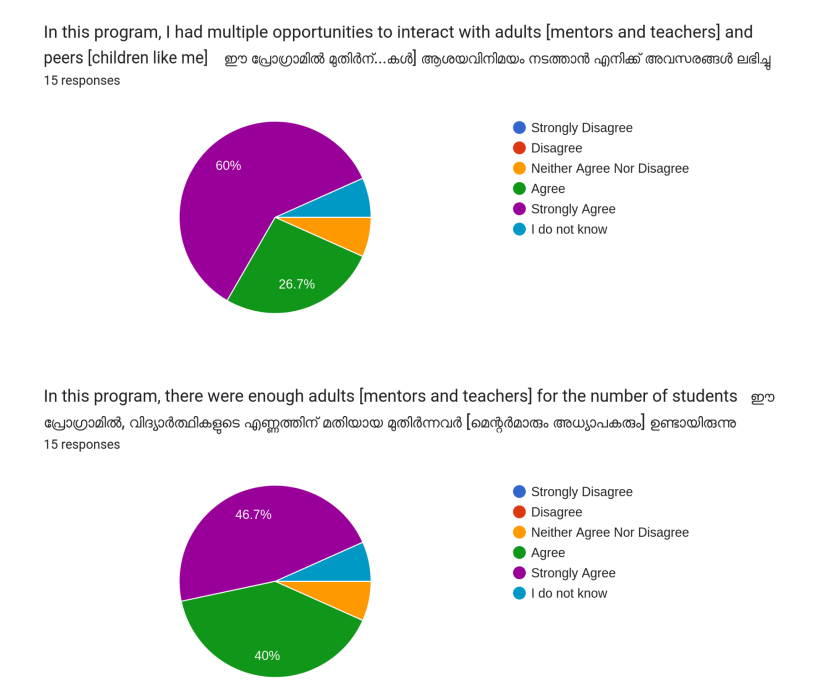
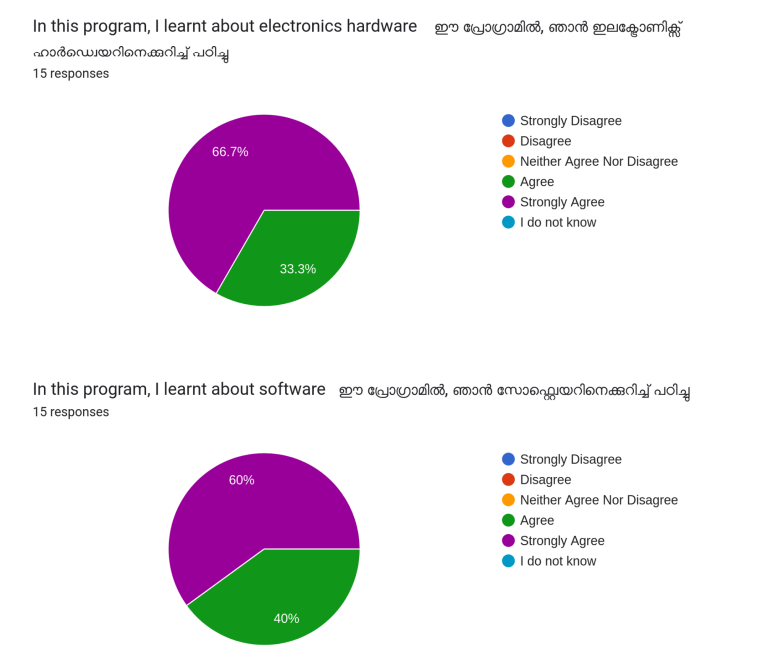
Student Prototype pictures from the 2 day Makeathon
Student Testimonials

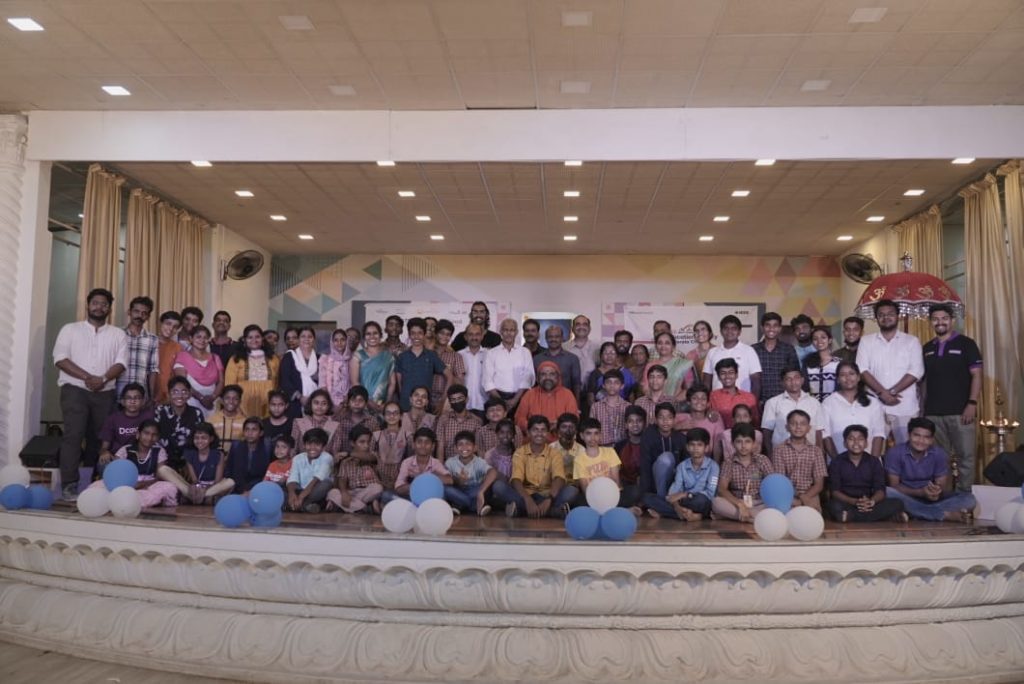
In Association With
